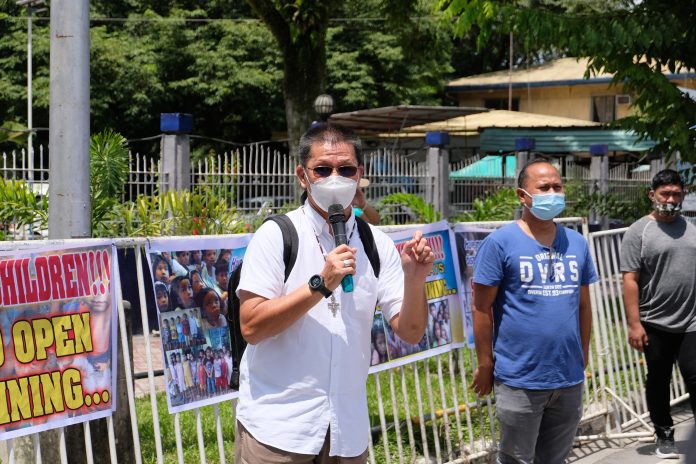The Diocese of Marbel in the southern Philippines has launched a signature campaign to urge the government to abandon dirty energy projects and protect Mindanao’s biggest river system.
Representatives of various civil society and Indigenous Peoples groups gathered at St. Michael Archangel Parish in Sultan Kudarat province on October 5 to form their “anti-coal movement.”
“In much the same way that open-pit mining alters ecosystems irreversibly and threatens water sources and biodiversity, so too does coal mining,” said parish priest Renante Aban, OMI.
The provincial government last year endorsed the operating contracts of three coal projects that cover the Daguma Mountain Range in the area.
“This favorable endorsement of the three coal projects contradicts the spirit in which the [government’s mining code] was created,” said Father Aban.
The provincial government has recently reaffirmed its environmental code banning open-pit mining method in the province.
The groups initiated the signature campaign hoping the provincial government will reverse its endorsement and completely abandon the dirty energy projects.
The coal projects aim to extract an estimated 230 to 328 million metric tons of lignite coal, which will translate into a 201 to 287 percent increase in the country’s annual coal production.
Bishop Cerilo Casicas of Marbel said the coal projects threaten all creation and will cause irreversible damage to “Our Common Home.”
The affected mountain range is the watershed source of Allah River, one of Mindanao’s biggest river systems and a major source of irrigation.
At least 54,452 hectares of fertile agricultural lands in the Allah Valley will be affected.
“There is very little debate that the extraction of coal directly contributes to the present climate emergency that the world faces, especially vulnerable nations such as the Philippines,” said Bishop Casicas.
The prelate said the coal projects will make the country “walk back on its commitment to do its own share in mitigating carbon emissions.”
Datu Dande Danyan, chief of the T’boli-Manobo S’daf Claimants Organization, said Indigenous Peoples communities “disapprove of these coal projects for they contradict our indigenous worldview, which treats nature as a sacred source of life.”
Lawyer Ryan Roset of the Legal Rights and Natural Resources Center said it is “prudent for the provincial board to stop these coal mines as a precautionary measure before their risks are realized.”









